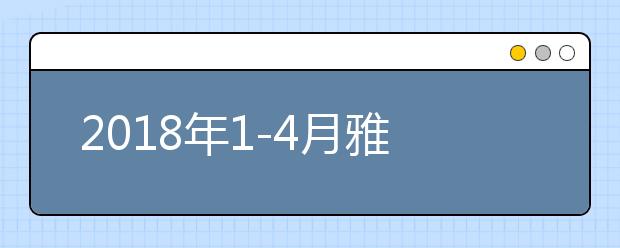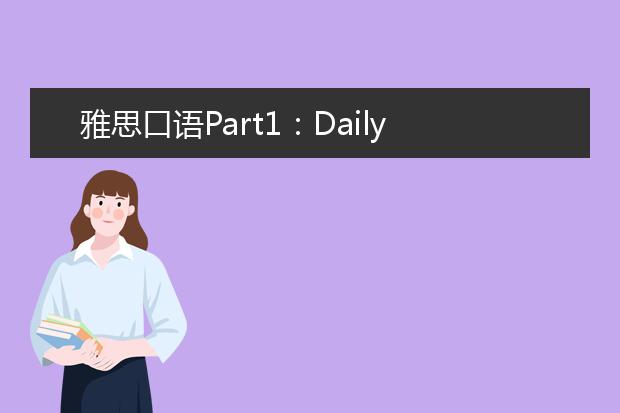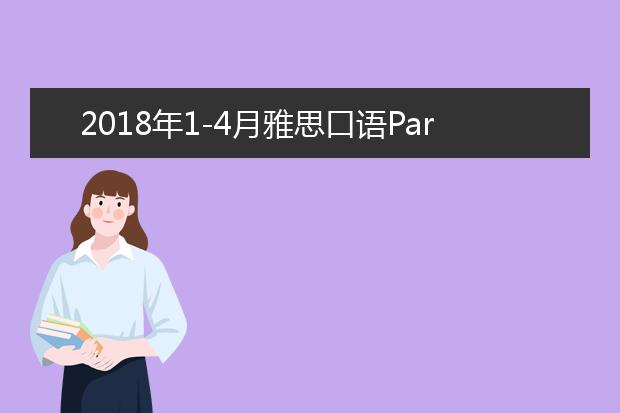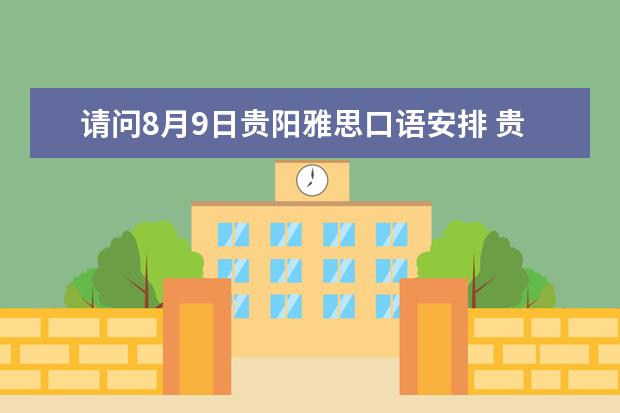1. Will you change your daily routine in the near future?
I am going to change my daily routine in the near future. I am about to travel to a new part of the country to study at university. When there(到时候),my entire daily routine will change as it will be structured (组织、安排)around my studies. I will have a completely new study, eating and exercise routine. For young people, our daily routines change frequently as our lives progress and we develop. In contrast, older people have normally developed a fixed daily routine that they are used to and are happy with. Therefore, for older people their daily routines do not change very often.
2. What’s the difference between people’s daily routine in the past and that in the present?
In the modem world,people’s daily routines are far different to people’s daily routines in the past. In the past peopled daily routines would involve a lot of transactions with the local community. People would buy their daily groceries (生活用品)for cooking meals from local markets and spend time with their families. Nowadays, modem life is a lot busier and people are often a lot more isolated. Therefore, peopled daily routines are focused more around themselves and their own self betterment (改善).People’s routines are focused more around their work and studies than on the local community.
3. Has your daily routine changed? And how?
My daily routine has changed a lot in my life. When I was a child I had very little control over my daily routine. For most people, while you are a child, your life and daily routines are planned by your parents. Thus,my eating routine and exercise routine were all dictated (决定)by my parents. When I left home my daily routine changed to fit my new lifestyle. I left home to study at university and adjusted my daily routine to fit my new study life. I slept later in the day and ate quicker meals so I could dedicate (致力、奉献)more time to my studies. This is very common for students, they must alter their daily routines drastically (彻底的)to fit the needs of university life.
4.What do you usually do on weekends?
On the weekends I like to spend my time relaxing after a long week’s hard work. During the weekends I will usually cook myself my favourite meals and watch some of my favourite television shows. In the late evening I like to spend my time reading books and listening to music. Some people, especially young people, like to go out at the weekends and experience the night life of the city. This is another exciting way to reward oneself after working all week. It is important to spend your free time on recreation and relaxation. If you work all of the time then you will become stressed and this can be very bad for one’s health.



 2018年1-4月雅思口语Part1题库:Daily Routine
2018年1-4月雅思口语Part1题库:Daily Routine
 雅思口语Part1:Daily Routine 日常规律
雅思口语Part1:Daily Routine 日常规律
 2018年1-4月雅思口语Part1题库:Daily Routine
2018年1-4月雅思口语Part1题库:Daily Routine
 12月5日湖北大学雅思口语考试安排(8月29日湖北武昌实验中学考点雅思口语考试安排)
12月5日湖北大学雅思口语考试安排(8月29日湖北武昌实验中学考点雅思口语考试安排)
 9月19日首都师范大学雅思口语考试安排 雅思UKVI中国考点-UKVI雅思考试特点全面分析及全国考点清单
9月19日首都师范大学雅思口语考试安排 雅思UKVI中国考点-UKVI雅思考试特点全面分析及全国考点清单
 4月26日太原雅思口语考试时间公布(山西太原市10月份雅思考试时间汇总)
4月26日太原雅思口语考试时间公布(山西太原市10月份雅思考试时间汇总)
 请问8月9日贵阳雅思口语安排 贵阳雅思报名日期
请问8月9日贵阳雅思口语安排 贵阳雅思报名日期
 请问8月9日贵阳雅思口语安排(请问贵阳考点1月18日雅思口语考试时间提前)
请问8月9日贵阳雅思口语安排(请问贵阳考点1月18日雅思口语考试时间提前)
 请问5月10日大连雅思口语考试时间 大连雅思考试报名条件及时间
请问5月10日大连雅思口语考试时间 大连雅思考试报名条件及时间
 报读雅思口语课程一对一价格多少?
报读雅思口语课程一对一价格多少?
 山东雅思备考:雅思口语扣分点有哪些
山东雅思备考:雅思口语扣分点有哪些  雅思口语备考新题答案解析:向某人作出承诺
雅思口语备考新题答案解析:向某人作出承诺  雅思口语范文:如何准备雅思口语part1
雅思口语范文:如何准备雅思口语part1  一般雅思口语考试时间多久 雅思口语考试相关
一般雅思口语考试时间多久 雅思口语考试相关  掌握正确的雅思口语语法的重要性有哪些?
掌握正确的雅思口语语法的重要性有哪些?  雅思各种口语考试技巧 盘点四个关于雅思口语...
雅思各种口语考试技巧 盘点四个关于雅思口语...
 雅思考试的报名流程详解(雅思报考流程)...
雅思考试的报名流程详解(雅思报考流程)...
 9月雅思考试时间(9月12日) 9月26日...
9月雅思考试时间(9月12日) 9月26日...
 在非洲如何考托福雅思 ?...
在非洲如何考托福雅思 ?...
 常见雅思口语题目(雅思这个月13号的考试,...
常见雅思口语题目(雅思这个月13号的考试,...